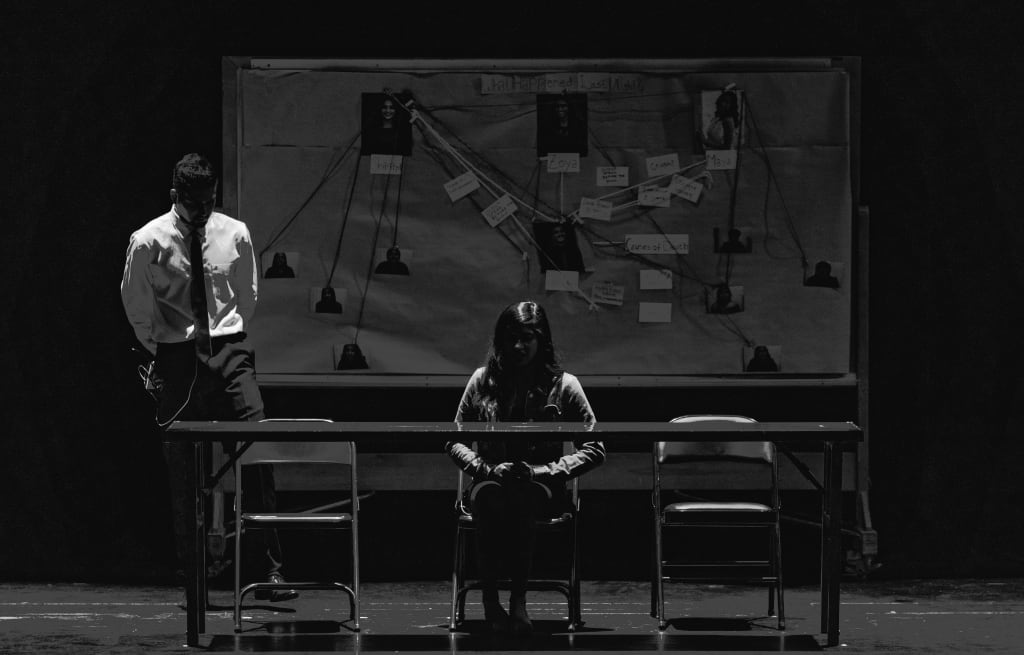The Rise of True Crime Entertainment: Balancing Entertainment & Respect for Victims
What can we do to balance respect and entertainment in the world of true crime? Let's find out

True crime podcasts and media have indisputably changed how we consume stories about true-life mysteries, investigations, and criminal deeds. These enthralling stories frequently delve into the most sinister parts of human behaviour, but they also highlight critical questions about how we balance our desire for pleasure with the need to respect the victims and their families. In this essay, we look at the impact of true crime podcasts and media on our culture, emphasising the need of striking a balance between offering compelling content and demonstrating empathy for those who have suffered.
1. The True Crime Podcast Boom
True crime podcasts have seen a meteoric rise in popularity over the last decade. Millions of committed listeners have flocked to shows like "Serial," "Criminal," and "My Favourite Murder," illustrating the genre's enormous popularity. These podcasts captivate listeners through fascinating storytelling, in-depth investigations, and deep dives into unsolved mysteries.
2. The Challenge of Exploitative Media
Concerns about exploitative storytelling and sensationalism have surfaced as the true crime podcast industry has evolved. Some podcasts risk violating ethical lines by emphasising grisly details, glorifying offenders, or ignoring victims' feelings.
3. Shifting the Spotlight to Victims
The importance of shifting the narrative focus to the victims and their families is recognised by responsible real crime journalism. Empathetic storytelling respects survivors' sorrow and trauma and attempts to give them a voice in the tale.
4. Humanizing Victims and Acknowledging Their Stories
True crime podcasts with the most impact humanise victims by offering context for their lives and personalities. These presentations ensure that their tales are not lost in the mystery of the crimes by portraying them as more than just numbers.
5. Ethical Reporting and Sensitivity
True crime media that is responsible exhibits ethical reporting practises. It avoids graphic depictions of violence, respects the privacy of victims' families, and obtains authorization from survivors before incorporating them in the storytelling process.
6. Advocacy and Awareness
Many true crime podcasts use their platform to advocate for and raise awareness about vital problems like wrongful convictions, systemic flaws in the criminal justice system, and the importance of victim assistance. They use the curiosity generated by true crime to effect constructive change.
7. Lessons Learned and Social Impact
True crime media can also be used to educate the public on topics such as safety, crime prevention, and recognising warning signs of criminal behaviour. These teachings can help to create a safer society by empowering people to protect themselves and their communities.
8. Striking a Balance
It takes great thought to balance the requirement for captivating storytelling with respect for victims. True crime podcasters must be conscious of the power of their stories and the role they play in moulding public opinions of crime and justice.
While true crime podcasts and media are obviously compelling, they have a moral and ethical obligation to respect the victims and their families. These media formats can shift their cultural impact from mere amusement to a force for empathy, awareness, and social advancement by focusing on humanising victims, campaigning for justice, and leveraging their platform for constructive change. In doing so, they ensure that the victims' tales are portrayed with the sensitivity and respect they deserve, rather than being dominated by the intrigue of the crimes.
At the end of the day, not only is it the responsibility of podcasters and media alike to bring light and be sensitive to the victims, but as true crime fans and enthusiasts alike, we also hold the same responsibilities in ensuring the victims' stories are heard and making people accountable for the stories they share by selecting information that brings a lot of facts and unbiased views to the table and ensuring the content true crime fans consume, are at the very least, good in quality and in factual story telling abilities that does not butcher a case.
About the Creator
Anisah Suhailah
A writer who's interested in various topics and dives deep into creating an engaging storytelling and interesting way of giving life to new perspectives.






Comments
There are no comments for this story
Be the first to respond and start the conversation.